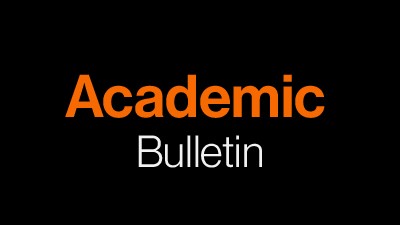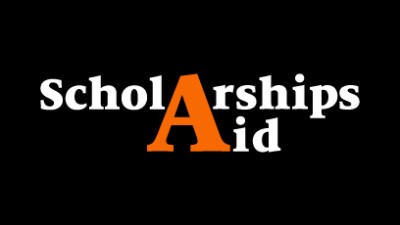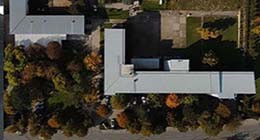Immersions
- RIT/
- RIT Kosovo/
- Academics/
- Immersions
Immersions Advise
Office of Academic Services
Phone: + 383 38 66 00 00
E-mail: academicaffairs@auk.org
Immersion Courses
As part of their bachelor's degree requirements, students must complete an immersion - a set of three related general education courses in a focused area linked by a theme or discipline. These upper-level courses are used to meet RIT's general education requirements. In many cases, an immersion can lead to a minor with the addition of two courses. At RIT Kosovo (A.U.K), there are nine different immersions offered.
Economics Immersion
Literature and Media Immersion
International Relations Immersion
Public Policy Immersion
Political Science Immersion
Communications Immersion
Environmental Studies Immersion
Sociology Immersion
Social Inequalities Immersion
Select a Immersion Course to read content
An economics immersion provides a systematic analysis of economic issues through the study of the allocation of scarce resources into production and the distribution of production among the members of society. This immersion is closed to students with a sub-plan in Economics and Statistics.
TOTAL CREDITS 9
| Required courses: | Credits | |
| ECON–101 | Principles of Microeconomics | 3 |
| Elective Courses (choose three courses) | ||
| ECON–402 | Intermediate Macroeconomic Theory | 3 |
| ECON–405 | International Trade and Finance | 3 |
| ECON–421 | Natural Resource Economics | 3 |
| ECON–422 | Benefit-Cost Analysis | 3 |
| ECON–431 | Monetary Analysis and Policy | 3 |
| ECON–441 | Labor Economics | 3 |
| ECON–448 | Development Economics | 3 |
| ECON–520 | Environmental Economics | 3 |
| ECON–430 | Managerial Economics | 3 |
The Literature and Media immersion gives students the opportunity to explore English studies in the areas of literature, linguistics, and creative writing. The immersion is flexible in order to accommodate student interest in areas such as specific literary historical periods or geographic areas, multimedia and the visual arts, or genre fiction such as science fiction, fantasy, or romance. Courses emphasize the ability to read literature and new media analytically and write critically.
TOTAL CREDITS 9
| Required courses: | Credits | |
| ENGL-210 | Literature and Cultural Studies | 3 |
| Elective Courses (choose two courses) | ||
| ENGL-307 | Mythology and Literature | 3 |
| ENGL-391 | Dangerous Texts | 3 |
| ENGL-315 | Digital Literature | 3 |
| ENGL-410 | Film Studies | 3 |
The international relations immersion combines the study of the complexities and shifting trends of international politics with the study of the global system. Particular emphasis is placed on the interactions and interconnectedness of nation-states at the international level and other participants in international affairs, such as international organizations, non-governmental organizations, sub-national entities, and individual citizens. Global issues studied include democratization, international and regional conflicts, terrorism, international trade and economic integration, economic development, international law and organizations, and human rights.
TOTAL CREDITS 9
| Elective Courses (choose three courses) | Credits | |
| POLS–325 | International Law and Organizations | 3 |
| POLS–330 | Human Rights in Global Perspectives | |
| POLS–335 | Publics in Developing Countries | 3 |
| POLS–445 | Terrorism and Political Violence | 3 |
This immersion provides students with a clear understanding of public policy, the policy process, and policy analysis. Students have the opportunity to develop perspectives on a variety of contemporary public policy issues, especially those that emerge from scientific and technological advancements. This immersion is closed to students with a sub-plan in Public Policy and Governance.
TOTAL CREDITS 9
| Elective Courses (choose three courses) | Credits | |
| PUBL-201 | Ethics, Values and Public Policy | 3 |
| PUBL-210 | Introduction to Qualitative Policy Analysis | 3 |
| PUBL-301 | Public Policy Analysis | 3 |
| PUBL-520 | Information and Communication Policy | 3 |
| PUBL-530 | Energy Policy | 3 |
| STSO-201 | Science and Technology Policy | 3 |
| STSO-421 | Environmental Policy | 3 |
The political science immersion emphasizes the interdependence of domestic politics and international relations in the age of globalization. The immersion brings together components of American politics, international relations, and comparative politics to provide students with both national and global perspectives on politics. Perhaps most important, the political science immersion seeks to help students make sense of the increasingly complicated political environment that confronts them in their role as citizens.
TOTAL CREDITS 9
| Elective Courses | Credits | |
| POLS-370 | Cyberwar, Robots and Future of Conflict | 3 |
| POLS-440 | War and State | 3 |
| POLS-445 | Terrorism and Political Violence | 3 |
| POLS-541 | Peacekeeping and Conflict Transformation | 3 |
| POLS-542 | War, Diplomacy and State Building | 3 |
Advanced study of selected areas of communication, including an overview of the fields of persuasion, mass communications, public speaking, and small group communication. Students will understand and apply several modes of communication in academic, professional, and personal situations.
TOTAL CREDITS 9
| Elective Courses | Credits | |
| COMM-201 | Public Speaking | 3 |
| COMM-223 | Digital Design in Communication | 3 |
| COMM-304 | Intercultural Communications | 3 |
The environmental studies immersion is an examination of the basic environmental problems we face, how environmental resource depletion and energy issues are related, and what kind of environmental ethics and/or values we have today and have had in the past. The immersion also explores the economic, legislative, and regulatory framework within which most environmental decisions are made. Since most technological areas are associated with significant environmental implications, it is essential that students have an understanding of and a well-thought-out value orientation about such environmental consequences.
TOTAL CREDITS 9
| Elective Courses | Credits | |
| ECON-421 | Natural Resource Economics | 3 |
| ECON-520 | Environmental Economics | 3 |
| PUBL-530 | Energy Policy | 3 |
| STSO-330 | Energy and the Environment | 3 |
| STSO-421 | Environmental Policy | 3 |
The immersion in sociology provides insights into the interactions between individuals and the major social forces shaping their lives. Students will learn sociology’s perspectives and methods and use them to explain how society is possible, to examine various social problems, and to assess collective efforts for social change.
TOTAL CREDITS 9
| Elective Courses | Credits | |
| ANTH-295 | Global Public Health | 3 |
| SOCI-224 | Social Inequality | 3 |
| SOCI-235 | Women, Work, and Culture | 3 |
Social inequalities and collective responses to them, both locally and globally, are the focus of this immersion. Students explore the interplay between social and cultural dimensions of the rapid globalization of societies, and the concurrent inequalities of race, ethnicity, class, gender, and culture. The egalitarian strivings that emerge from these inequalities also will be examined. Courses offer the unique standpoints of two academic disciplines, sociology and anthropology, to analyze the roles of powerful social institutions and culture industries, and to identify and explain social inequalities and resulting conflicts and egalitarian hopes.
TOTAL CREDITS 9
| Elective Courses | Credits | |
| ANTH-295 | Global Public Health | 3 |
| ANTH-430 | Visual Anthropology | 3 |
| SOCI-225 | Social Inequality | 3 |
| SOCI-235 | Women, Work, and Culture | 3 |
Related: Sub-Plans Minors Immersions









